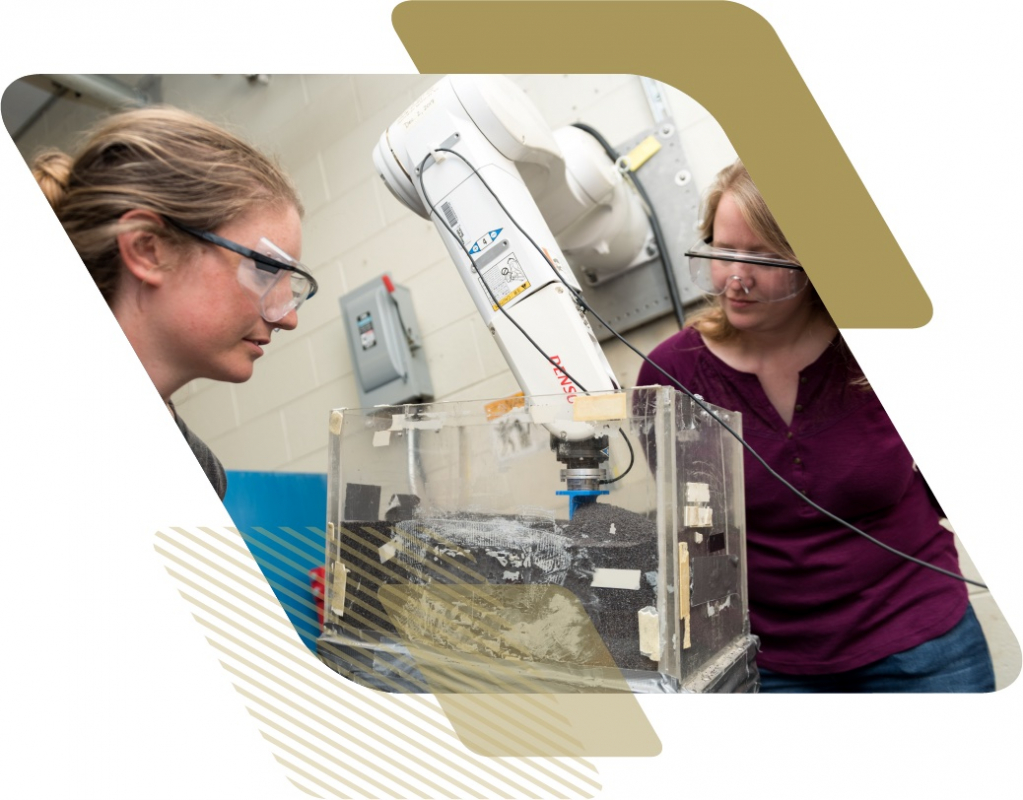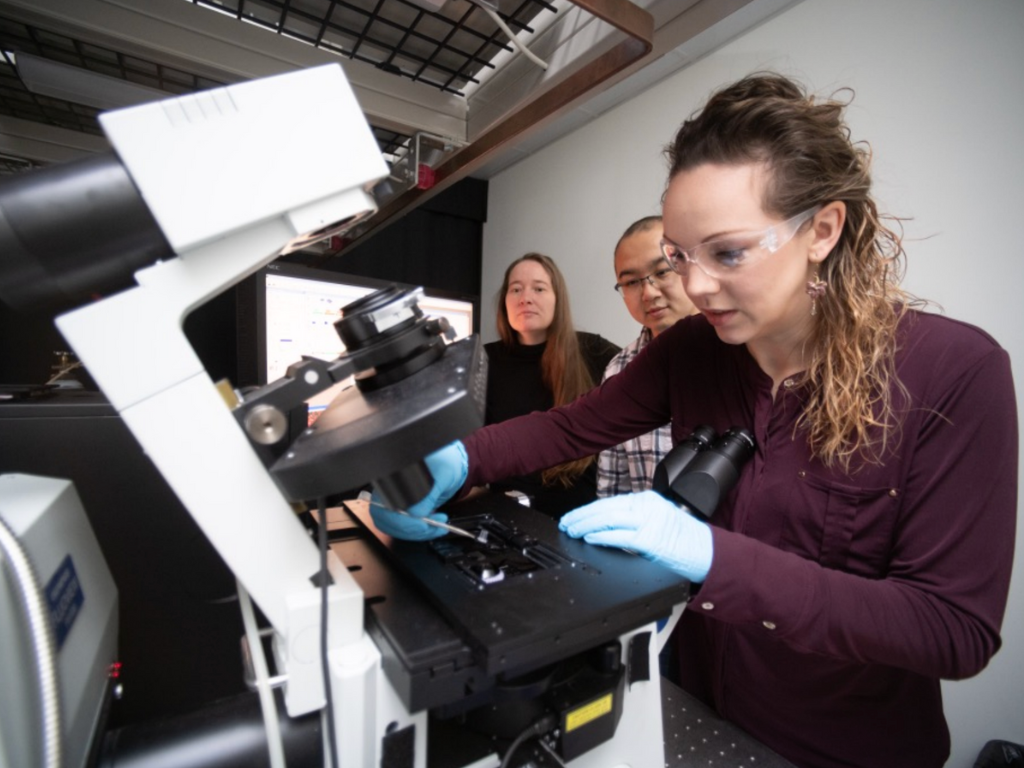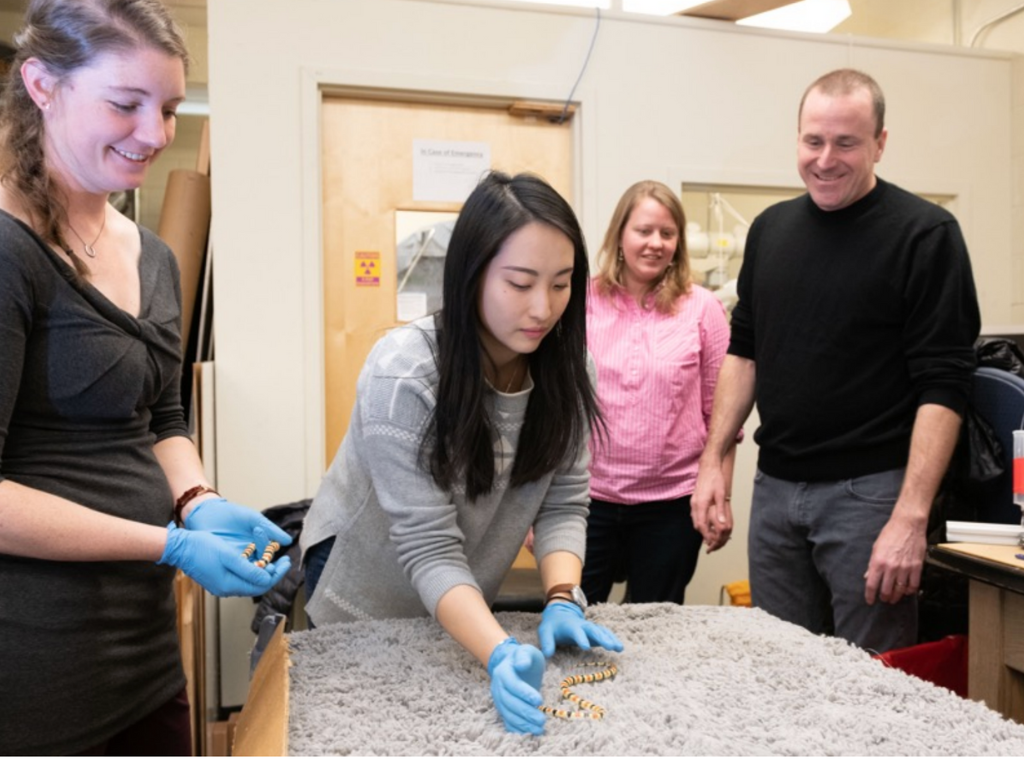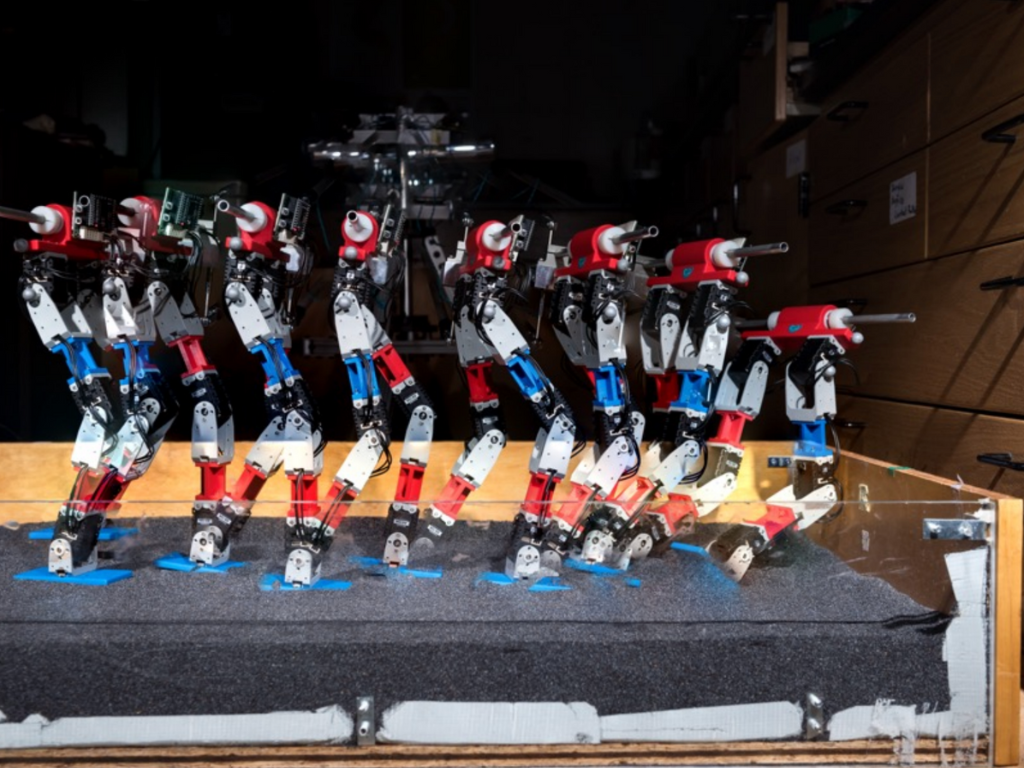 The School of Physics offers Bachelor of Science degrees in physics and applied physics. The undergraduate physics degree is broad based with an initial emphasis on core topics such as classical and quantum mechanics, thermal physics, and electromagnetism. This is followed by a range of more specialized courses including atomic, solid state, optical, nuclear and particle physics; biophysics, astrophysics, computational physics and relativity. Applied physics students add several lab courses to put their physics training into practice. Both majors allow for an optional concentration in the physics of living systems. Students are able to develop their own programs of study with the aid of faculty advisement.
The School of Physics offers Bachelor of Science degrees in physics and applied physics. The undergraduate physics degree is broad based with an initial emphasis on core topics such as classical and quantum mechanics, thermal physics, and electromagnetism. This is followed by a range of more specialized courses including atomic, solid state, optical, nuclear and particle physics; biophysics, astrophysics, computational physics and relativity. Applied physics students add several lab courses to put their physics training into practice. Both majors allow for an optional concentration in the physics of living systems. Students are able to develop their own programs of study with the aid of faculty advisement.
Download fact and major information as a pdf here.
Building the foundation for academic and industry careers
Approximately half of all physics and applied physics majors progress to doctoral study at either Georgia Tech or at other prestigious universities. Students may also go to graduate school in other disciplines such as electrical engineering and materials science, where a bachelor degree in physics or applied physics is recognized as effective preparation. Other students choose to go into education, business and industry. Banking (economic forecasting) and oil exploration are among the many areas that seek physics and applied physics majors.
Creating community
The Society of Physics Students and the Society of Women in Physics at Georgia Tech provide a vibrant scholarly and social environment in the School, as well as an introduction to the community of physicists. Activities such as general interest lectures, outreach, field trips and social functions allow students to interact with their peers and faculty members.
Undergraduate research
Undergraduate students working in world renowned research groups in the school have the opportunity to contributed to research published in leading scholarly journals, and to attend premier conferences in their fields. For example:
- Lila Nassar investigated the biophysics of cell cultures in the laboratory of Prof. Jennifer Curtis and has conducted research in quantum magnetism under the direction of Prof. Martin Mourigal.
- Vishal Sudahkar, working with Prof. Zeb Rocklin and his collaborators, conducted a theoretical study on the rigidity of tensegrities, objects with both rigid and flexible elements common in biology and engineering.
- As Letson Scholars, Sam Quinn conducted theoretical studies of turbulence in the group of Prof. Roman Grigoriev, while Yiting Pei attempted to optimize the spectroscopy of thullium atoms embedded in a noble gas matrix in the laboratory of Prof. Colin Parker.
- James McCord used tensor network methods employed in quantum information theory to investigate data compression, as a Letson Scholar under Prof. Glen Evenbly.
- As a Petit Scholar, Julianne Tijani studied the entropy production of antibiotic-resistant bacteria in Prof. Peter Yunker’s laboratory.
International opportunities
Students in the School of Physics have a wide range of opportunities for undergraduate study at institutions throughout the world. Further information can be obtained from the Office of International Education. (www.oie.gatech.edu).
Careers
The B.S. programs in physics and applied physics provide exceptional levels of preparation for graduate study and professional graduate programs (e.g., medicine, veterinary science, pharmacy, law, etc.) Graduates take positions in all types of employment sectors, such as:
Consulting • Nuclear Physics • Nonlinear Physics • Acoustics • Health Physics • Communications • Aerodynamics • State and Federal Agencies (e.g., NIST, NASA) • Condensed Matter Physics • Research and Development • Medical Instrumentation • Astrophysics and Astronomy • Optics • Particle and Atomic Physics • Sales and Marketing • High School and College Teaching
Georgia Tech has the largest voluntary co‐op education program in the nation. Participation in co‐op or internship programs provides financial support for students’ studies, and invaluable experiences. See
www.coop.gatech.edu.
Georgia Tech is one of the top schools in terms of the annual percentage return on investment whereby lifetime salary is compared to tuition costs [1].



